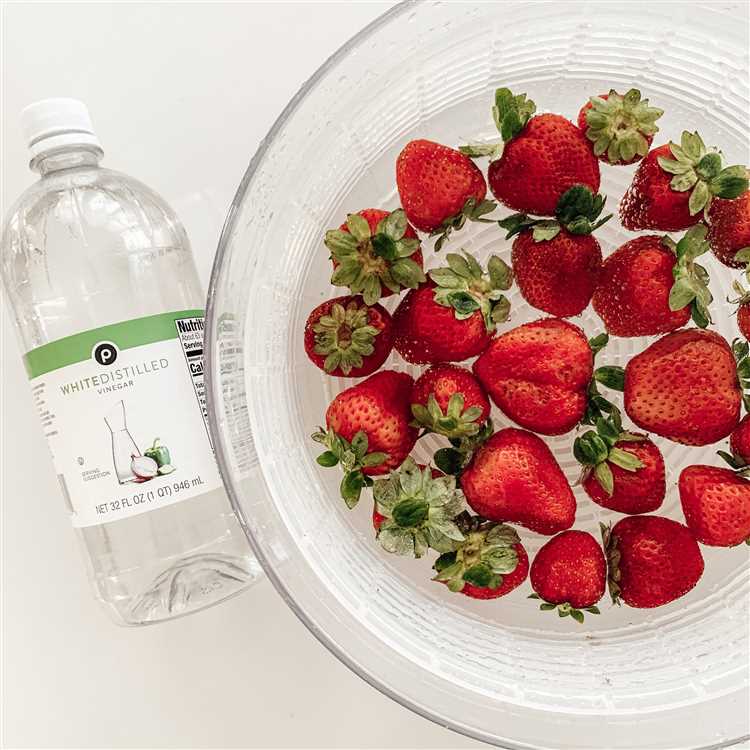
When it comes to grocery shopping, there are many choices to make: which fruits to buy, which brand to choose, and whether or not to wash the produce before storing it. Washing fruits and vegetables is a common practice to remove any dirt or potential pesticides, but is it necessary? Let’s dive into the pros and cons of washing fruit before storing it.
One argument in favor of washing fruit before storing is the removal of germs and bacteria. Fruits are often handled by various people before they reach the consumer’s hands, and these hands may not always be clean. By washing the fruit, you can reduce the risk of ingesting harmful bacteria and minimize the chances of getting sick.
On the other hand, some argue that washing fruit before storing can actually be detrimental. This is because moisture can encourage the growth of mold, which can spoil the fruit faster. Additionally, washing certain types of fruit, such as berries, can make them more prone to becoming mushy and losing their texture.
In conclusion, whether or not to wash fruit before storing it is a personal choice. If you are concerned about potential bacteria or pesticides, it is advisable to wash the fruit. However, if you prioritize preserving the fruit’s freshness and texture, you may choose to skip the washing step. Ultimately, it is important to handle and store your fruit properly to ensure the best possible quality and safety.
- The Importance of Washing Fruit
- Food Safety
- Pesticide Residue
- Hygiene and Freshness
- The Risks of Not Washing Fruit
- Proper Techniques for Washing Fruit
- 1. Rinse under cold water
- 2. Use a scrub brush
- 3. Soak in a vinegar solution
- 4. Pat dry
- Factors to Consider Before Washing Fruit
- Storage Tips for Washed Fruit
- 1. Allow the Fruit to Dry Completely
- 2. Use airtight containers or resealable bags
- 3. Place the containers in the refrigerator
- Q&A,
- Can I wash fruit before storing?
- What is the purpose of washing fruit before storing?
- Is it necessary to wash fruit before storing it in the refrigerator?
- What is the best way to wash fruit before storing?
- Can I use soap or detergent to wash fruit before storing?
- Should I wash fruit before storing it?
The Importance of Washing Fruit
Washing fruit before storing it is an important step in maintaining optimal health and preventing foodborne illnesses. Fresh fruits are known for their nutritional value and can be a delicious addition to any diet. However, without proper washing, they can also harbor harmful bacteria, pesticides, and dirt.
Food Safety
One of the primary reasons to wash fruit before storing is to remove any potential pathogens that may be present on the surface. Fruits can come into contact with various sources of contamination, such as soil, insects, and even human handling during transportation and handling.
By washing fruit, you can effectively reduce the risk of foodborne illnesses caused by pathogens like bacteria, viruses, or parasites. These microorganisms can cause diseases like E. coli, Salmonella, and Hepatitis A, which can lead to symptoms such as nausea, vomiting, diarrhea, and even more severe complications in some cases.
Pesticide Residue
Another reason to wash fruit before storing is to remove pesticide residues. Many fruits are commonly grown using pesticides to protect against pests and diseases. While these pesticides are generally regulated and considered safe for consumption, it is still advisable to minimize exposure to them.
Washing fruit under cold running water can help remove a significant portion of pesticide residues, reducing your overall exposure. Additionally, scrubbing with a vegetable brush can be especially effective in removing any remaining pesticide residues or wax coatings.
It is essential to note that washing alone may not completely eliminate pesticide residues, as some may have been absorbed or have penetrated the fruit’s skin. However, it can significantly reduce your exposure to these chemicals.
Hygiene and Freshness
Washing fruit also helps maintain good hygiene and freshness. Fruits can accumulate dirt and debris during handling and storage, and washing them can remove these contaminants.
Additionally, washing fruit can help remove any natural coatings or waxes applied to enhance their appearance and shelf life. While these coatings are generally safe, some individuals may prefer to remove them before consumption.
Overall, washing fruit before storing is a simple yet effective step in maintaining food safety, reducing pesticide exposure, and ensuring optimal hygiene and freshness. By making it a habit to wash your fruit thoroughly, you can enjoy the many health benefits they provide with peace of mind.
The Risks of Not Washing Fruit
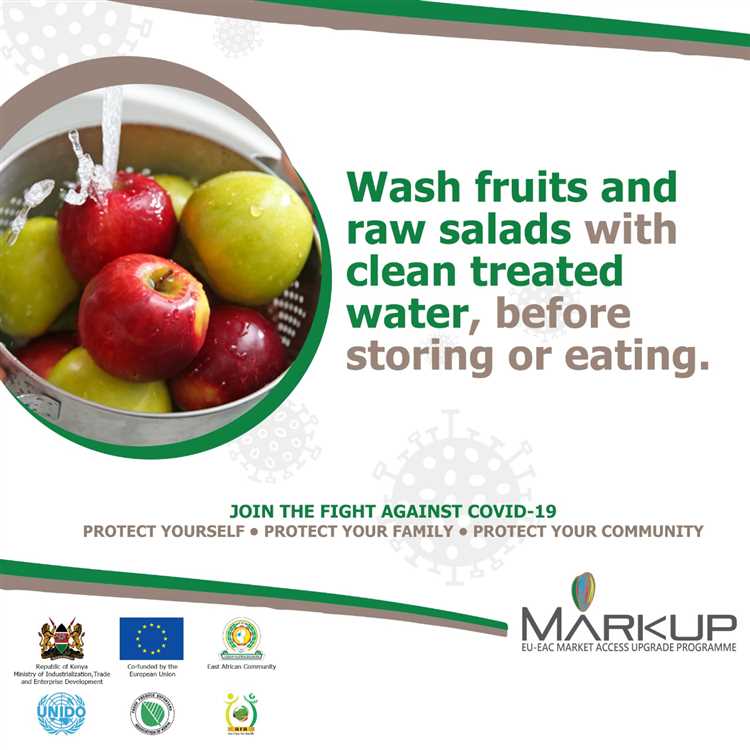
While it may be tempting to skip washing your fruit before storing it, there are several risks associated with doing so. Fruits can harbor a variety of bacteria, pesticides, dirt, and other contaminants that can pose a threat to your health if ingested.
One of the main risks of not washing fruit is the potential for bacterial contamination. Fruits can be contaminated with harmful bacteria such as E.coli and Salmonella, which can cause food poisoning. These bacteria can be present on the surface of the fruit, transferred from the soil, or introduced during handling and processing.
Another risk of not washing fruit is the presence of pesticides. Many fruits are treated with pesticides to prevent insect infestation and disease. If you don’t wash your fruit, these pesticides can remain on the surface and be ingested when you eat the fruit. Prolonged exposure to pesticides has been linked to various health problems, including cancer and reproductive issues.
Additionally, unwashed fruit may also contain dirt and other contaminants. Fruits are often exposed to soil, dust, and other environmental elements during growth and transportation. If you consume unwashed fruit, you may be ingesting these contaminants, which can cause gastrointestinal issues and other health problems.
Washing your fruit before storing it can help reduce these risks. By rinsing the fruit under cool running water, you can remove dirt, bacteria, pesticides, and other contaminants that may be present on the surface. It’s important to note that washing fruit with soap or detergent is not recommended, as it can leave behind residues that are not safe for consumption.
Overall, taking the time to wash your fruit before storing it is a simple and effective way to reduce the risks associated with consuming contaminated fruit. It’s a small step that can have a big impact on your health and well-being.
Proper Techniques for Washing Fruit
Washing fruit is an important step in ensuring that your produce is clean and safe to eat. Here are some proper techniques for washing fruit:
1. Rinse under cold water
The first step in washing fruit is to rinse it under cold water. This will help remove any dirt or debris on the surface of the fruit. Make sure to thoroughly rinse all sides of the fruit, including any crevices or bumps.
2. Use a scrub brush
If the fruit has a firm skin, such as apples or cucumbers, you can use a scrub brush to gently scrub the surface of the fruit. This helps to remove any wax or residue that may be present. Be sure to rinse the fruit again after scrubbing.
3. Soak in a vinegar solution
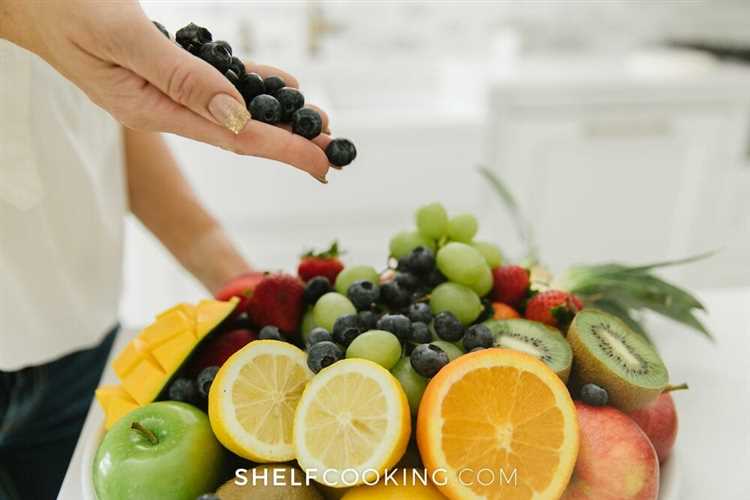
For fruits that have a softer skin, such as berries or grapes, you can create a vinegar solution to help remove any bacteria or pesticides. Mix one part vinegar with three parts water, and soak the fruit for about 10 minutes. Rinse the fruit thoroughly after soaking.
4. Pat dry
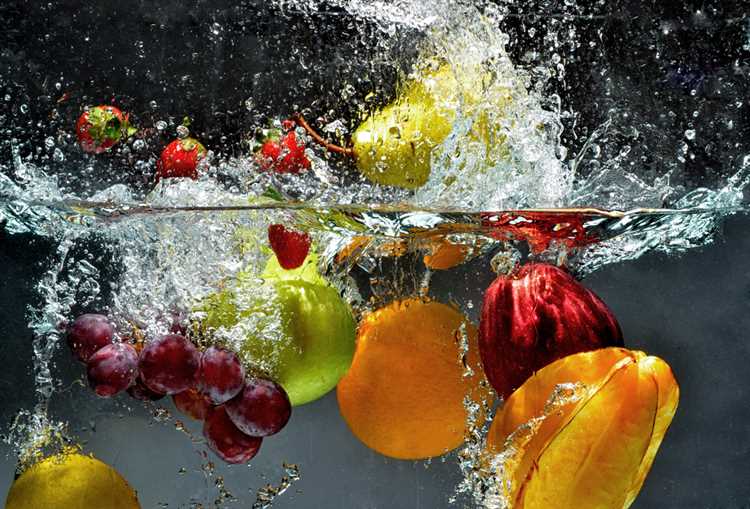
After washing the fruit, pat it dry with a clean towel or paper towel. Drying the fruit helps to remove any remaining moisture, which can promote the growth of bacteria.
By following these proper techniques for washing fruit, you can ensure that your produce is clean and safe to eat. Remember to always wash your fruit before storing it to maximize its freshness and longevity.
Factors to Consider Before Washing Fruit
Before deciding whether or not to wash your fruit before storing it, there are a few factors you should consider. While it may be tempting to wash all your fruit immediately after purchasing it, there are situations where it may be more beneficial to wait.
| Factors | Considerations |
|---|---|
| Ripeness | If your fruit is still unripe and you plan on storing it for a few days to allow it to ripen, it’s best to wait to wash it. Washing unripe fruit can accelerate the ripening process and potentially cause the fruit to spoil before it fully ripens. |
| Storage Duration | If you’re going to consume the fruit within a day or two, it may not be necessary to wash it before storing. Washing the fruit too far in advance can make it spoil faster due to the excess moisture. |
| Storage Environment | The conditions in which you plan to store your fruit can also impact whether or not you should wash it beforehand. If you’re storing your fruit in a clean and controlled environment, washing it before storing may not be necessary. However, if you’re storing the fruit in a less-than-ideal environment, washing it can help remove any potential contaminants. |
| Fruit Type | Not all fruits are created equal when it comes to washing before storing. Some fruits, such as berries, are more delicate and can be easily damaged by washing. In these cases, it may be best to wait until just before eating to wash them. |
In conclusion, the decision to wash your fruit before storing depends on several factors such as ripeness, storage duration, storage environment, and fruit type. Assessing these factors can help you determine the best approach to ensure the longevity and quality of your fruit.
Storage Tips for Washed Fruit
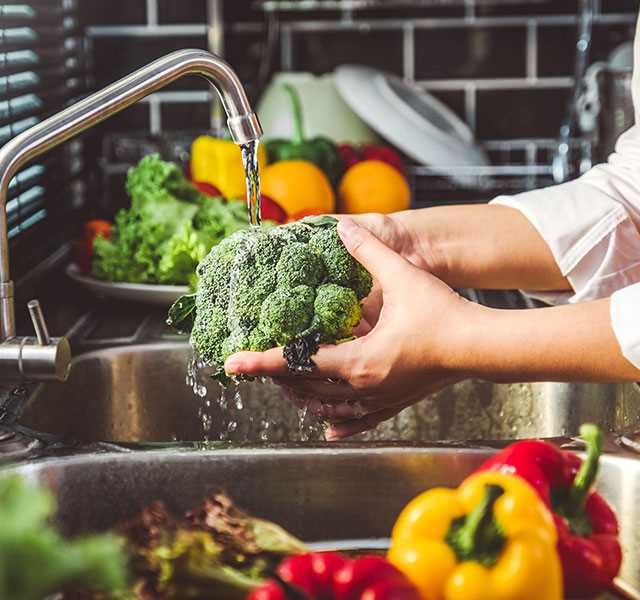
After washing your fruit, it’s important to store it properly to ensure its freshness and quality. Here are some tips to help you store your washed fruit:
1. Allow the Fruit to Dry Completely
Before storing washed fruit, make sure it is completely dry. Use a clean kitchen towel or paper towels to gently pat the fruit dry. Excess moisture can promote the growth of bacteria and mold, causing the fruit to spoil faster.
2. Use airtight containers or resealable bags
Transfer the washed and dried fruit into airtight containers or resealable bags. These containers will not only prevent the fruit from getting exposed to air, but they will also keep the fruit fresh for a longer period of time.
3. Place the containers in the refrigerator
Store the washed fruit in the refrigerator to prolong its shelf life. The cool temperature will help slow down the ripening process and prevent the fruit from spoiling quickly. Make sure to set the refrigerator at the appropriate temperature for storing fruit.
Consider keeping the washed fruit separate from other types of food to prevent cross-contamination and to preserve its flavor and aroma.
By following these storage tips, you can ensure that your washed fruit stays fresh and delicious for an extended period of time. Enjoy your clean, crisp, and juicy fruit!
Q&A,
Can I wash fruit before storing?
Yes, it is recommended to wash fruit before storing it. Washing the fruit helps remove dirt, bacteria, and any pesticide residue that may be present on the skin.
What is the purpose of washing fruit before storing?
The purpose of washing fruit before storing is to remove any dirt, bacteria, or pesticide residue that may be present on the skin. This helps reduce the risk of consuming harmful substances and keeps the fruit clean and safe to eat.
Is it necessary to wash fruit before storing it in the refrigerator?
Yes, it is necessary to wash fruit before storing it in the refrigerator. Washing helps remove any dirt or bacteria that may be present on the skin, which can contaminate other fruits in the same storage area.
What is the best way to wash fruit before storing?
The best way to wash fruit before storing is to rinse it under running water. Gently scrub the surface of the fruit with a clean brush or your fingers to remove any dirt or residue. Dry the fruit thoroughly before storing it.
Can I use soap or detergent to wash fruit before storing?
No, it is not recommended to use soap or detergent to wash fruit before storing. These substances can leave a residue on the skin of the fruit, which can be harmful if consumed. It is best to use only water to rinse the fruit.
Should I wash fruit before storing it?
Yes, it is recommended to wash fruit before storing it. Washing helps to remove dirt, bacteria, and pesticides from the surface of the fruit, which can help prolong its freshness and prevent contamination.
